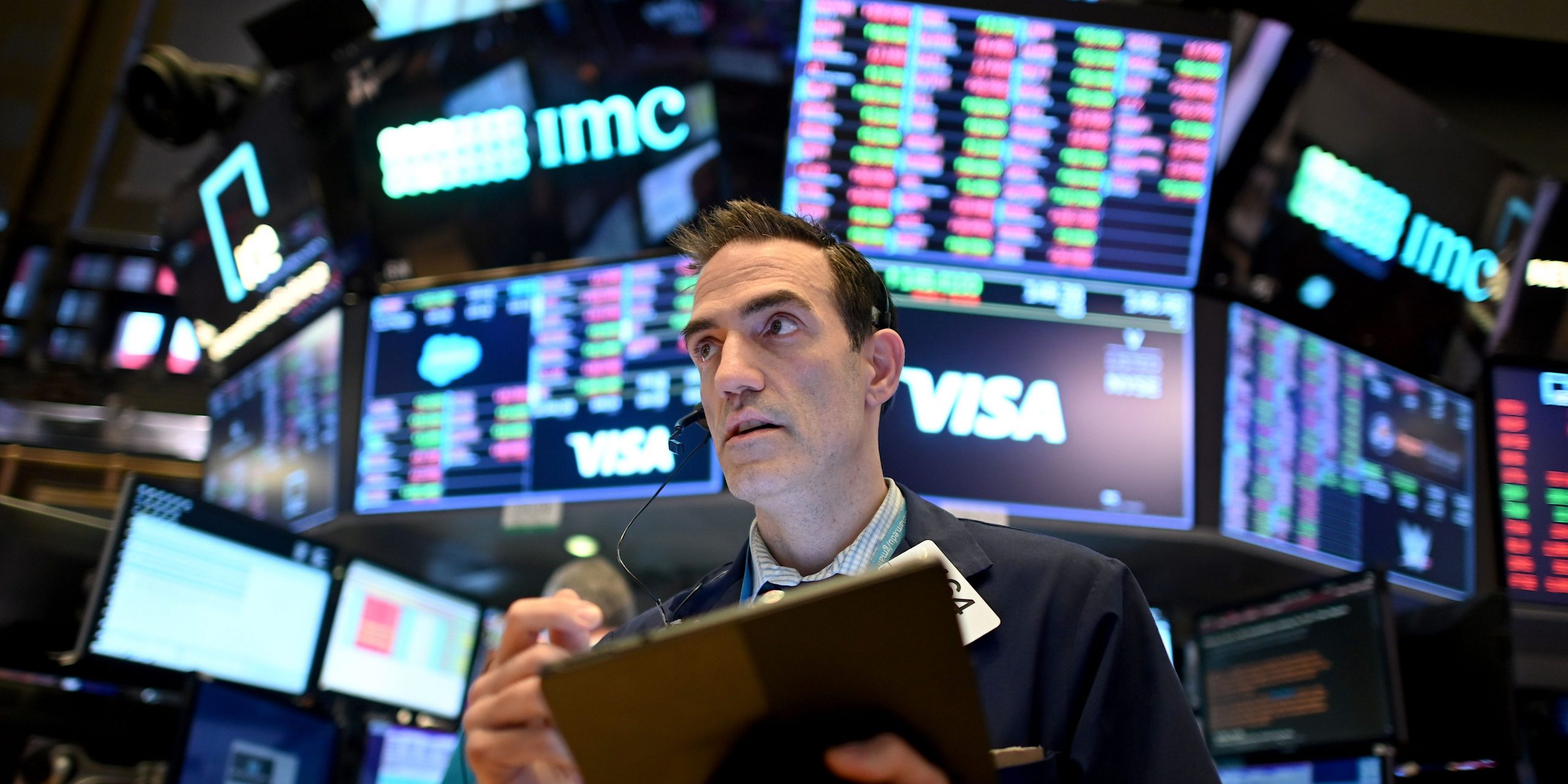
Johannes Eisele/AFP via Getty Images
- The air has escaped the "frothiest" parts of the market after huge gains, says Bespoke Investment.
- "Extreme" selling in momentum stocks has left a number of them driven down by half.
- The 30 largest stocks in the Russell 1000 have combined lost more than $1 trillion in market cap.
- Visit the Business section of Insider for more stories.
The recent slide in stocks has wiped out the "frothiness" in some of Wall Street's hottest spots, said market research provider Bespoke Investment Group. The firm also said its analysts see some mega-caps as trading at "attractive" entry points following last week's market sell-off.
Major US stock indexes have been knocked back as investors price in expectations for economic growth and higher inflation as the world's largest economy recovers from the COVID-19 pandemic. Some Treasury yields, notably the 10-year yield which influences a range of lending programs, have been quickly pushed higher. This has triggered a selloff, particularly in technology stocks whose values have run higher since hitting a bear-market low in late-March 2020.
Over the last few weeks, "the air has completely come out of the frothiest parts of the market that saw mind-boggling moves to the upside in the 2-3 months prior to their recent peaks. In areas like SPACs, software, AI, solar, EVs, and cannabis, we've seen declines across the board ranging from 25%-60%," Bespoke wrote in a note released late Friday.
"These areas could certainly continue lower, but for now the "frothiness" is completely gone," it said.
The "extreme" selling in momentum stocks has left a number of previously high-fliers down by a third to a half in a matter of weeks, the group said. The note displayed a list of stocks on the Russell 1000 index that have recently traded the farthest from their 52-week highs. The list included exercise tech and equipment maker Peloton, solar microinverter producer Enphase Energy and cloud infrastructure company Cloudfare.
Some of the stocks on the list have traded the farthest below their analyst price targets. "Most of these look like 'falling knives' still to us, but we'll let you decide if you like any of these from a technical perspective," wrote Bespoke in the note.
Meanwhile, special purpose acquisition companies, or SPACs, "are getting hammered," it said, noting that in aggregate, "a broad snapshot of names is down 20% from recent highs, with similar performance for SPACs that have announced deals," while those that haven't announced deals have been down 10%.
Turning to mega-caps, the 30 largest stocks in the Russell 1,000 have combined lost more than $1 trillion in market cap since the February 12th closing high for the Russell 1,000 and the S&P 500.
The five largest Russell 1,000 stocks -- Apple, Microsoft, Amazon, Alphabet and Facebook -- were at least 15% below their average analyst price target, paced by Amazon's drop of 28%.
"It will be interesting to see if analysts stick to their guns and keep their price targets for these mega-caps, or if they decide to start lowering them," said Bespoke. "For now, based on analyst opinions, the mega-caps are trading at attractive entry points."